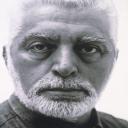Yahoo Answers is shutting down on May 4th, 2021 (Eastern Time) and beginning April 20th, 2021 (Eastern Time) the Yahoo Answers website will be in read-only mode. There will be no changes to other Yahoo properties or services, or your Yahoo account. You can find more information about the Yahoo Answers shutdown and how to download your data on this help page.
Trending News
wHAT SIGNIFICANCE IS A 2ND bARONET? hOW IS THAT RELATED TO A dUCHY?
I/m not yelling I can't type well, and takes too much time to redo
I guess a 2nd Baronet is low on the food chain!!!!!
I read a lot of history and cannot imagine how unfair life in Victorian (and earlier) England was.
Some of my ancestors stayed (cousins) and my grandparents left. I probably would have been hung because of my "cheekiness".
3 Answers
- 1 decade agoFavorite Answer
A baronet is a holder of a hereditary title awarded by the British Crown known as a baronetcy. It is the only hereditary honour that is not a peerage, and although a baronet is styled Sir, for example, Sir Denis Thatcher, a baronetcy is not a knighthood; the former prime minister is Baroness Thatcher and is styled Dame Margaret Thatcher.
James I of England (and VI of Scotland) originated this title because he was always short of funds, and wealthy merchants were quite willing to pay for the title. Since Victorian times, while the baronetcy has been awarded to politicians and entrepreneurs, the Crown has also bestowed it upon individuals who have contributed to British society or who have made a major contribution to British literature. Sir Robert Baden Powell, the founder of the Boy Scouts, was a baronet as were Sir James Matthew Barrie, the playwright who wrote "Peter Pan", and Sir Walter Scott, a 19th-century novelist.
You're very correct--a baronet is low of the aristocratic food chain while a duke is right up there. Royal dukes, such as the Duke of Edinburgh, Prince Philip, the Duke of Cornwall, Prince Charles, who is also the Prince of Wales, and the Duke of York, Prince Andrew, are also princes. The Crown, of course, has also bestowed the title of Duke upon non-royals in the past for winning military victories; for instance, John Churchill, the first Duke of Marlborough (1650-1722), and Arthur Wellesley )1769-1852), the first Duke of Wellington.
-----
BTW, capital punishment (and hanging) was abolished in the United Kingdom in 1969.
Source(s): http://en.wikipedia.org/wiki/Baronet - The Dark SideLv 71 decade ago
They aren't related at all.
The ranks of the British peerage are as follows:
Duke
Marquess
Earl
Viscount
Baron
Immediately below that comes a baronet, and then a knight.
A baronet is an hereditary knighthood. A baronet has Sir in front of his name, and Bt. after it. A 2nd baronet will have inherited the title from his father, the 1st baronet of that name.
- PacoLv 71 decade ago
Baronacy are much lower than Dukedomes in the UK. The preference in Britain is Dukedome over Duchy.




